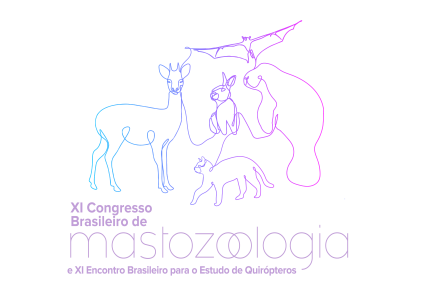Dados do Trabalho
Título:
ENVIRONMENTALLY PLASTIC OR SENSITIVE ANIMALS? LAND USE PATTERNS OF TWO LARGE PREDATORS IN TROPICAL AGROECOSYSTEMS
Resumo:
Mammalian carnivores are particularly vulnerable to natural habitats conversion, but some species are frequently detected in anthropogenic areas. So, it is still unclear how they use modified landscapes, especially the tropical agroecosystems. Here, we investigate how pumas (Puma concolor) and maned wolves (Chrysocyon brachyurus) use three modified landscapes in southeastern Brazil. We used camera traps to sample 205 sites and estimate species occupancy and detection probabilities - interpreted as use probability (Ψ) and frequency of use (p), respectively. Our models predicted that both species extensively use the study landscapes (model-averaged use probability of 0.65 for puma and 0.50 for maned wolf). Puma frequency of use is higher in sites distant to edifications and highly covered with savanna. Maned wolf frequency of use is lower in forest-dominated areas and in a better protected but more forested landscape. Puma use probability is high in areas closer to watercourses, while maned wolf use probability is higher in unpaved roads and sites farther from edifications. Overall, our findings indicate both species are environmentally plastic, but riparian areas seem critical to puma. The extensive use of unpaved roads and the negative effect of edifications proximity reflect carnivores’ movement adaptations, but also can represent collision risks and limited access to landscape resources. Thus, our data indicate species resilience but highlight some relevant anthropic threats that need to be managed.
Keywords: Agricultural landscapes, Atlantic Forest, carnivores, Cerrado, Chrysocyon brachyurus, maned wolf, occupancy models, puma, Puma concolor.
Financiamento:
Fundação de Amparo à Pesquisa do Estado de São Paulo – FAPESP (2011/22449-4, 2018/11788-1, 2013/12914-7);
Coordenação de Aperfeiçoamento de Pessoal de Nível Superior – CAPES (88882.180034/2007-01, 88887.467966/2019-00, 8882.328678/2019-01, 1772007);
Conselho Nacional de Desenvolvimento Científico e Tecnológico – CNPq (130158/2013-5, 303101/2017-2).
Área
Ecologia
Autores
Marcella Carmo Pônzio, Nielson Pasqualotto, Vinicius Alberici, Roberta Montanheiro Paolino, Adriano Garcia Chiarello
